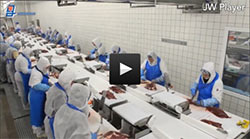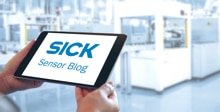Anyone ordering sirloin, rib-eye, or tenderloin steak in a restaurant in Europe is most likely being served quality beef from Goedegebuur, a beef specialist in Rotterdam, Netherlands. More than 170 employees process over 2,000 beef hindquarters there every day for catering trade, restaurant chains, meat industry and retail all over Europe. MPS Food Logistic Systems, one of the leading specialist in intralogistics solution helped Goedegebuur to optimize the packaging line. Image-based code readers from SICK play an important role.
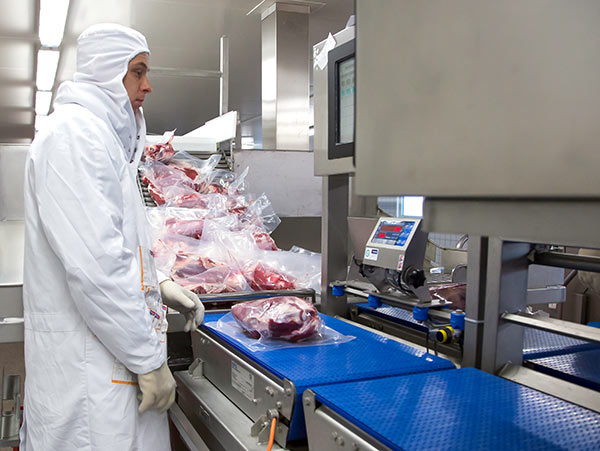
As Edwin Valstar, IT Manager at Goedegebuur, says, In developing the solution for the packaging line, we did not want to stop at automating existing processes. We also wanted to optimize our work and increase capacity. MPS Food Logistic Systems helped us to restructure our packaging line.
Restructuring the work process
In the past, employees worked in a line, one after the other, weighing, labeling, sorting, and packing the meat, reports Valstar. Now the working areas are separate. Several employees weigh and label the vacuum-packed cuts of meat. With a simple push of a button, they indicate which cut of beef they are processing. The MPS sorting machine then uses this information to determine how the meat is sorted. The boxes are then packed by the employees stationed below at the sorter.
The 2D challenge
MPS Food Logistic Systems was able to count on many tried-and-tested partial solutions for the intralogistics system at Goedegebuur. Erik van den Beld, Manager Engineering at MPS was faced with a number of challenges when it came to scanning the box labels: The available space for applying an additional code on the box label was really limited. There was also no way of ensuring fixed alignment of the label, because some labels are applied by hand. For this reason we chose a 2D code. To set up a reliable process that took into account the capabilities of the existing label printers, we had to find a suitable module size. This size, and the number of digits required for creating unique codes, led to a code format of 18 x 18 mm."
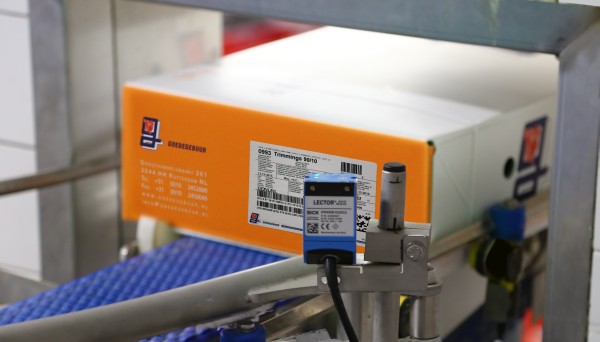
But there was still a further problem: The labels could only be affixed to the front side of the boxes. As van den Beld explains, It would have been easy to scan box labels running parallel to the conveyor belt. But we had to come up with a solution that would allow labels to be scanned on the front or back sides of the boxes. For this reason, the 2D code scanner had to be set at a difficult angle. Reading performance is a critical aspect of scanners in logistics systems. Code readers constitute both the interface between our machines and transport components and the PLC, as well as between MPS Warehouse Management and the order processing system on the other. "The Lector62x image-based code reader produced very good results under these circumstances."
Tracking every step of the way
SICK's image-based code readers play an important role in traceability. Legislation charges us with classifying areas of responsibility. From the time the beef quarters reach us to the moment that they leave our premises, we must be able to track the meat, explains Valstar. Thanks to SICK scanners, we can always tell where individual meat products are located.
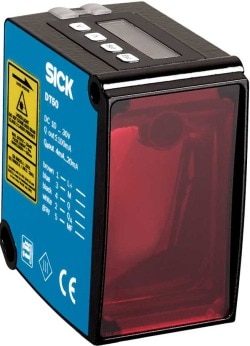 DT50 mid-range distance sensor
DT50 mid-range distance sensor
In addition to the Lector62x, MPS also employs SICK sensors at other stages of the process. In the chilled storage area, we employ DT50 mid-range distance sensors, to take depth measurements. The system uses these measurements to determine where there is available space for additional boxes or crates. The shelf crane there is one of the newest innovations from MPS. Our crane has very low energy demands. It is fast and can be fitted with different load-bearing tools.
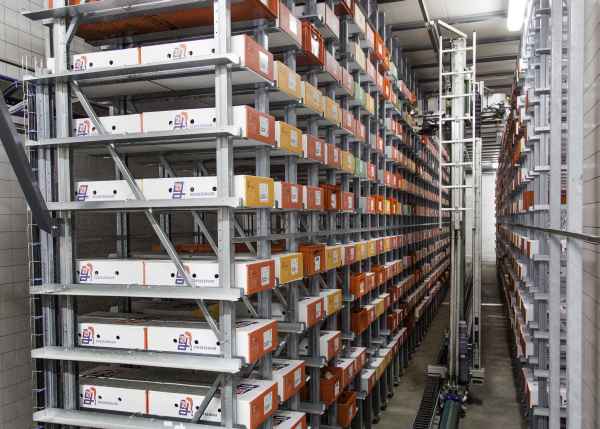
Erik van den Beld from MPS was similarly complementary about SICK: "SICK helped us test the codes and also provided support during the coordination of the codes and the scanners. Thanks to the high quality, reliable, and innovative approach of the sensor manufacturer, van den Beld says that his company would also be a regular customer of SICK in the future. We are always referring to SICK products for special solutions.
Video Lector62x
- Product informationen: Lector62x image-based code reader, DT50 mid range distance sensor
- Product portfolio: Image-based code reader (1D/2D/OCR), Mid range distance sensors
- Customer information with Video: Goedegebuur
